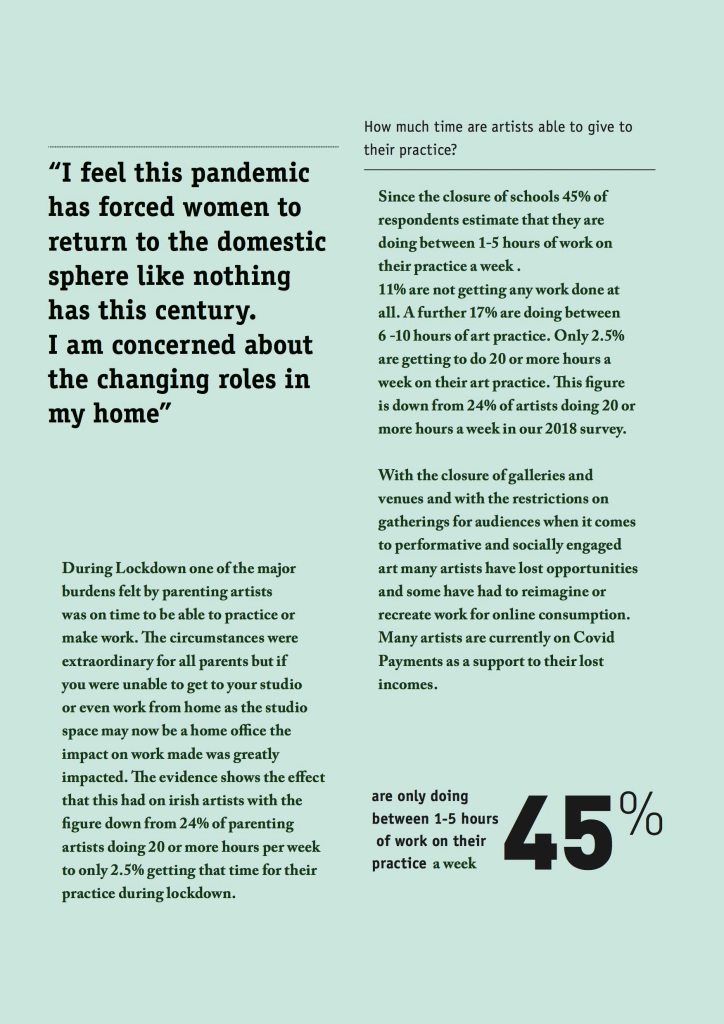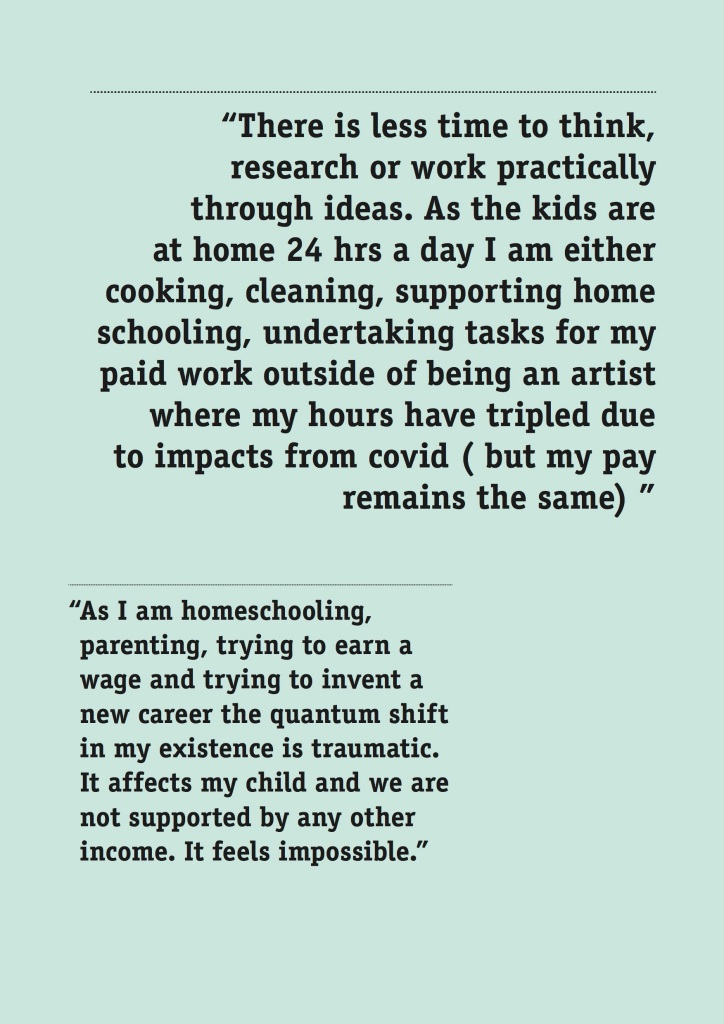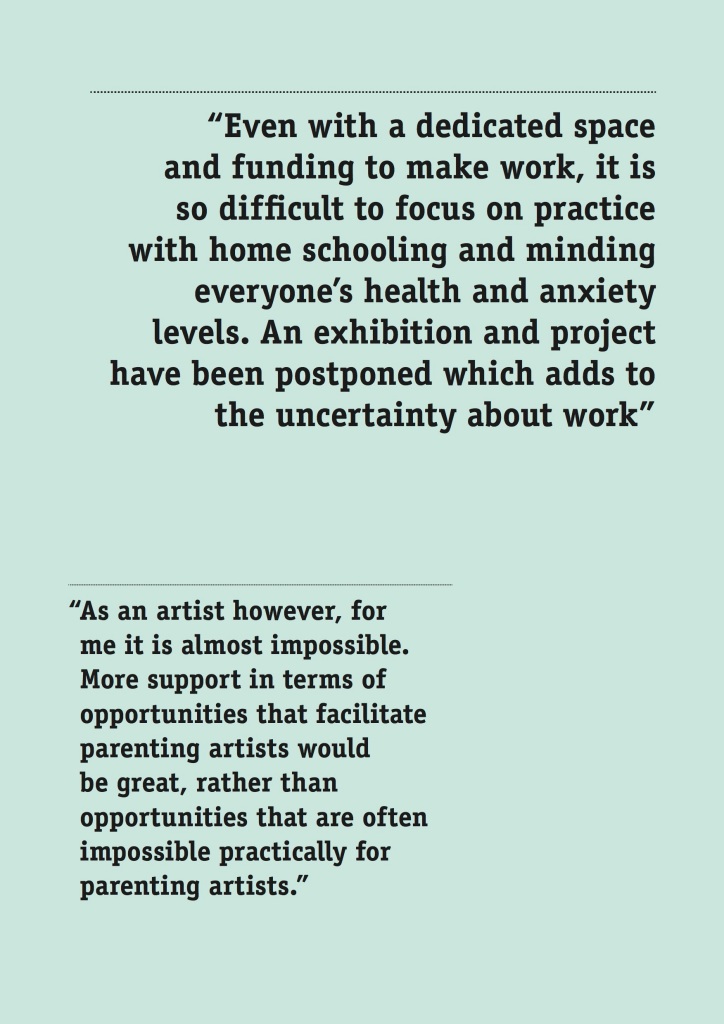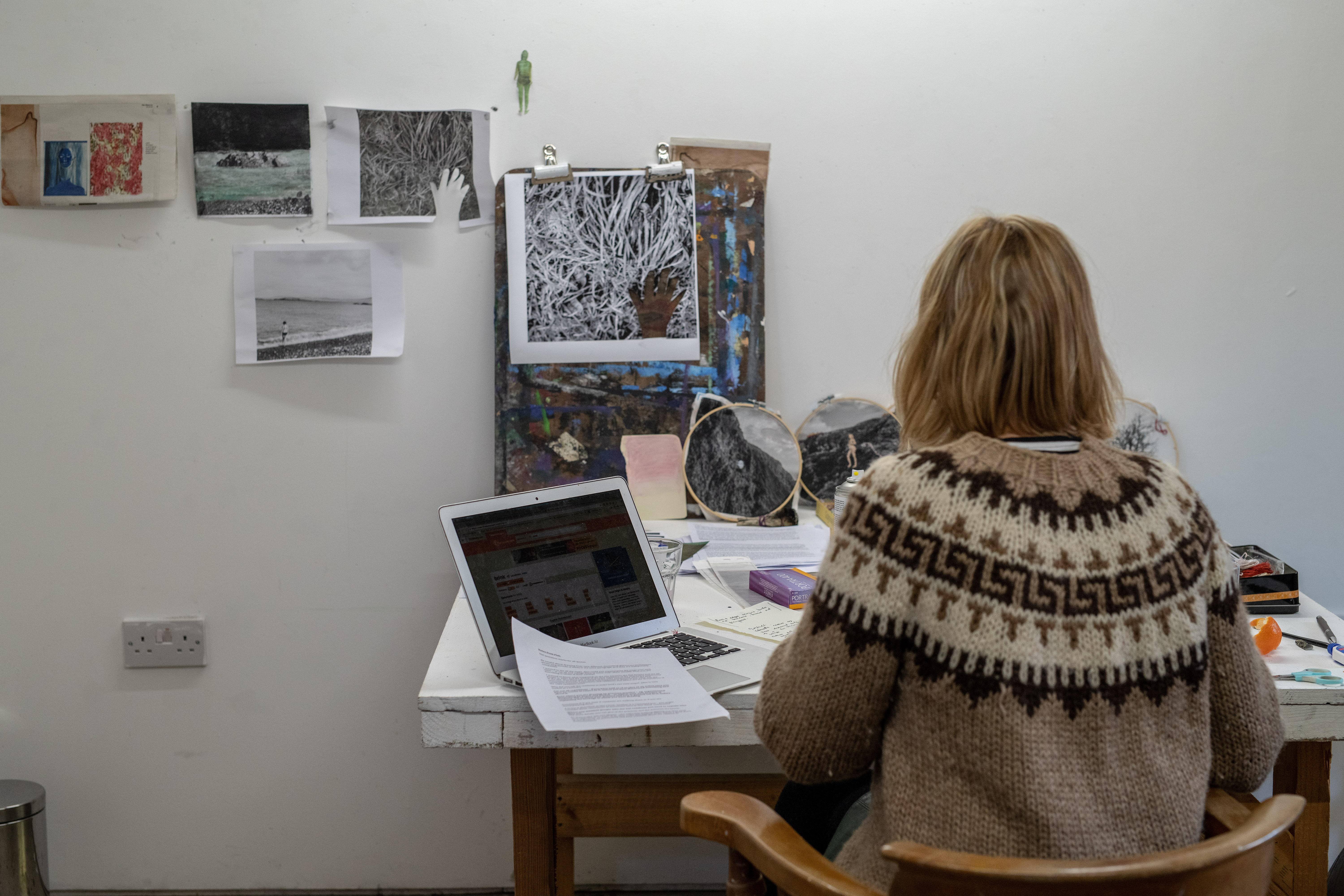Over the last ten years, academics and artists have focused increasing attention on the intersections of ‘artmaking’ and ‘mothering’ as is evident by a growing number of international conferences, publications, artist collectives and residencies that, amongst other things, attempt to render visible the precarious balance between the two different forms of labour. Furthermore, it confirms, as Rachel Epp Buller notes in Reconciling Art and Mothering (2012): “Many contemporary artist-mothers are no longer willing to hide their maternal status.”(5). It was with this in mind that I attended the launch of The Mothership Project Satellite Findings (May 16, 2019, The Lab, Dublin), a publication that marks the culmination of six years of efforts by a collective of artists, the majority of whom are mothers, to make the art world a more inclusive place for parents.

The Mothership Crew Michelle Browne, Tara Kennedy, baby Kim, Seoidín O’Sullivan and Leah Hillard at the Launch of The Satellite Findings.
Speaking at the launch, artists Michelle Browne and Leah Hilliard, on behalf of The Mothership Project, discussed the genesis of the network which began as a series of meet-ups organised by and for parents who came together in solidarity to discuss the challenges they faced: finding time for artistic practice, the relative isolation of artists who are primary carers, the high cost of childcare and the relative economic instability of parenting artists. For the organisers of the project, it was important to conduct a survey that moved beyond personal observations and anecdotes into concrete empirical findings that translate into structural changes to enable parenting artists to fully participate in their creative communities.
In August 2018, The Mothership Project conducted a survey via Survey Monkey, designed in conjunction with researcher Dr Helen Kara. It aimed to provide insight into four main issues: Time, Space, Money and Care. Of the 145 respondents, 92% were mothers, 68% had two or more children and 58% were between ages 36-45. A significant number of parents reported working between the hours of 9am– 12 pm and 12pm -3pm, coinciding with children’s school attendance. 70% reported working between the hours of 9pm – 12am, after children’s bedtime. This gives insight into the necessity of adapting to children’s schedules and suggests that between the two forms of labour, artists are most likely working long hours. It also demonstrates that time spent on art work is extremely precious. The majority of respondents (70%) create their work from inside the home. The statistics that 89% reported making art cost them money and 76% turned down opportunities due to lack of childcare makes for stark reading. However, the survey recommends six positive changes that will better benefit parenting artists. [https://themothershipproject.files.wordpress.com/2019/05/mship-final-to-print-1.pdf] The publication includes an essay by Prof Eileen Drew (TCD) that further digests these findings, examining them againstthe shifting work culture in Ireland. Drew argues that policy-makers and funding bodies need to focus attention on changes that will facilitate a better work-life balance for these artists.
The initial survey findings were fed into the development of Satellite Residency at Cow House Studios (Wexford). The residency was funded by the Arts Council of Ireland and Wexford County Council Arts Office, and received support from Visual, Carlow and Wexford Arts Centre. RosieO’Gorman of Cow House Studios spoke briefly about the residencies and how they supported the participating artists. In October-November 2018, fifteen selected artists, some families in tow, though others attended solo, were given valuable uninterrupted time and space for their creative practices. They availed of studio space, onsite childcare, flexible scheduling and the luxury of a shared meal without having to cook or clean up afterwards. The analysis of the exit survey included in the publication confirms the benefits to participants.
Prof Kathleen Lynch (UCD) discussed ‘love labour’ and economies of care underscoring the need to re-evaluate how love and care work is viewed within the context of a neo-liberalism. She argued that love, care and solidarity are key equality issues for women. As a concept ‘love labour’ resonates with both artmaking and raising children, both provide an immeasurable benefit to our society that we cannot do without. Afterwards, Dr Declan Long (NCAD) chaired an open discussion on the survey findings and Prof Lynch’s talk. From the audience, an artist highlighted the importance of acknowledging practices that expand and contract (in terms of the range, production, scale and output) depending on the demands of one’s parental duties. They called for the art community toreassess the value placed on these practices. There was discussion about the naming of the ‘Mothership’ and this elaborated on how artists grappled with the shifting identities of ‘artist’ and ‘mother’ and ‘parent’. At this point a father who participated in the Satellite Residency reiterated the necessity of continuing to politicise the term ‘mother’ in the context of artmaking.
Ultimately, The Mothership Project Satellite Findings makes a welcome and timelyintervention into the status of parenting artists in Ireland. It provides valuable insight into the different, often times, invisible barriers that parenting artists face. This publication holds the potential to improve the lives of parenting artists and, in doing so, further enrich our creative communities. What remains to be seen is how soon before these recommendations are widely implemented.
Dr Kate Antosik-Parsons
Researcher, L’Internationale
National College of Art and Design
http://www.kateap.com























